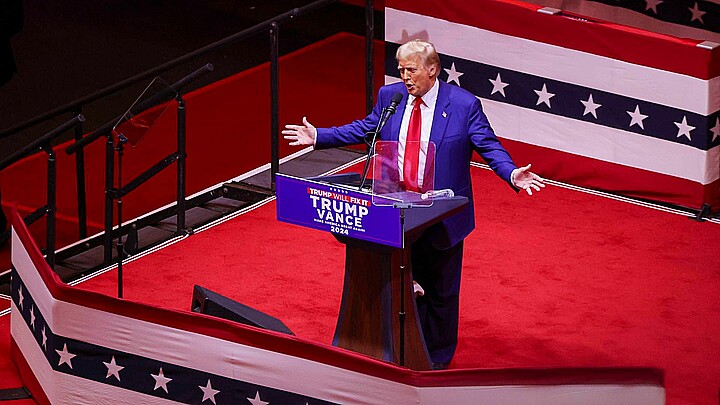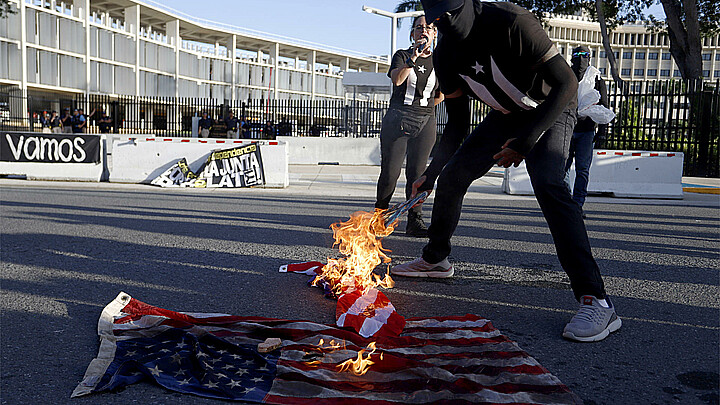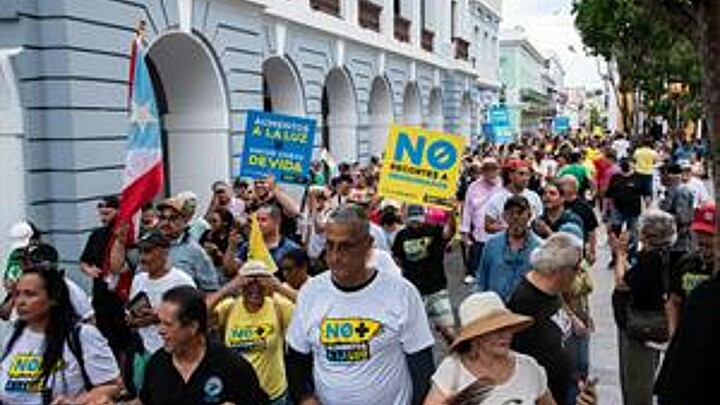Politics
Puerto Rico Status Act will return to Republican controlled House for another statehood vote with new Congress
The bill was passed by a 233-191 vote on Dec. 15, but it will not get to President Biden’s desk for signing unless the U.S. Senate votes on it before Jan. 3
December 28, 2022 8:59am
Updated: December 28, 2022 8:59am
The Puerto Rico Status Act, which passed the U.S. House of Representatives last week will most likely not face a vote in the Senate before the new Congress is sworn in on Jan. 3, sending the legislation back to the lower chamber for a revote, per congressional procedures.
The bill, which stems from a consensus among Congressional members who previously sponsored similar legislative proposals finally came to fruition after another bill called the Puerto Rico Self-Determination Act was introduced by Democratic New York Reps. Nydia Velazquez and Alexandria Ocasio-Cortez.
The current legislation that passed the House seeks to change the U.S. protectorate’s legal status through a federally binding plebiscite, giving Puerto Ricans the opportunity to vote their way into American statehood.
But since congressional legislation must be approved by the House and Senate during the same term, the recent vote of 233-191 will effectively be null and void once new Members are sworn in on Jan. 3, 2023.
Those who have followed the long, enduring saga expect that to be a major setback for the bill since only eight of the 16 of Republicans who voted alongside Democrats for the measure will not be returning to Congress.
The White House encouraged immediate congressional action.
“The Administration supports House passage of H.R. 8393, the Puerto Rico Status Act, which would provide Puerto Ricans with a fair and binding democratic process to address the political status of Puerto Rico,” a Dec. 15 a statement from the Office of Management and Budget of the Executive Office of the President reads.
“For far too long, the residents of Puerto Rico—over 3 million U.S. citizens—have been deprived of the opportunity to determine their own political future and have not received the full rights and benefits of their citizenship because they reside in a U.S. territory. H.R. 8393 would take a historic step towards righting this wrong by establishing a process to ascertain the will of the voters of Puerto Rico regarding three constitutional options for non-territorial status: Statehood, Independence, and Sovereignty in Free Association with the United States.
“The Administration looks forward to working with Congress throughout the legislative process to ensure that this bill comports with our Nation’s democratic principles. The President calls on Congress to act swiftly to put the future of Puerto Rico’s political status in the hands of Puerto Ricans, where it belongs.
If statehood advocates were in fact able to get the legislation passed in the House again, they would still need to convince at least nine Republican Senators to join their cause since the Democrats only have a 51-49 majority. They are also short the number of votes to defeat a filibuster.
Once the bill returns to the U.S. House, it will also force a revote in the House Natural Resources Committee, which is in charge of making legislative decisions related to U.S. territories.
That committee however, will no longer be chaired by Democrat Rep. Raul Grijalva who was originally sponsored the bill. The committee will shift to control under Republican Rep. Bruce Westerman since it is part of the process when there is a new Congress for committee chairmanships to shift to whichever party has the majority.
If somehow the bill were to get through committee, then it will go to the House for a floor vote. If somehow the bill gets enough support from the newly Republican controlled House it will proceed to the Senate.
If it were to get the votes needed to pass then it would most likely proceed to a process called “conference” in which the two parties negotiate changes made after the legislation flowed from the House to the Senate.
Still, getting the bill even out of committee may prove challenging since Westerman has lashed out against Democrats for having pushed the bill, and has even made accusations of impropriety.
The incoming Republican Chair voted against the Puerto Rico Status Act during the floor vote, and asked his colleagues to let “a full and robust legislative process take place.”
The bill’s recent passage actually signals the first time the House passed a federally binding plebiscite that could set aside Puerto Rico’s status as a territory.
“We’ve been a territory for 124 years,” said Resident Commissioner Jenniffer González-Colón, a nonvoting Republican member of Congress who represents Puerto Rico and supports statehood. “We don’t want to remain as a territory.”
Puerto Rico has a long history of complex politics involving statehood debate with parties and organizations including the Puerto Rican Independence Party, New Progressive Party and the Popular Democratic Party.
Some Republican senators said they have concerns about the lack of consensus in Puerto Rico on the issue and believe there would need to be more unity before the island was brought into the union as a state.
“There should be a significant consensus on the island before the status is changed in one direction,” Sen. Roger Wicker said.
Velázquez said she is not going to give up the fight for Puerto Rican statehood.
“There will never be a perfect bill, but members with opposite views can come together to craft a bill,” she said. “If members of Congress believe in upholding the U.S. constitutional values and that we shouldn’t be a colonizing nation, then I do believe there is consensus to get the current Puerto Rico status changed.”










